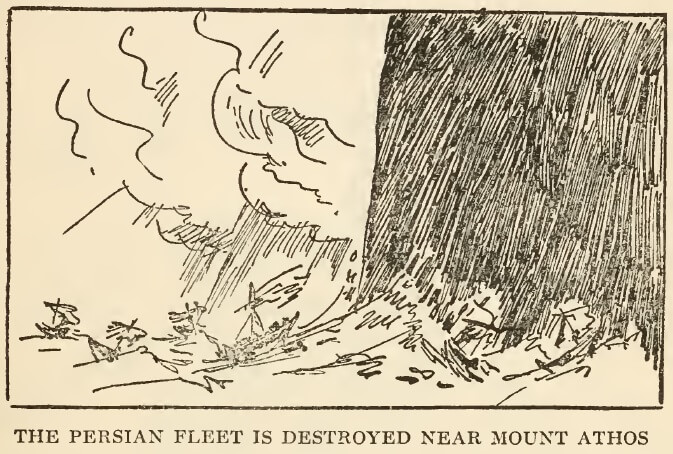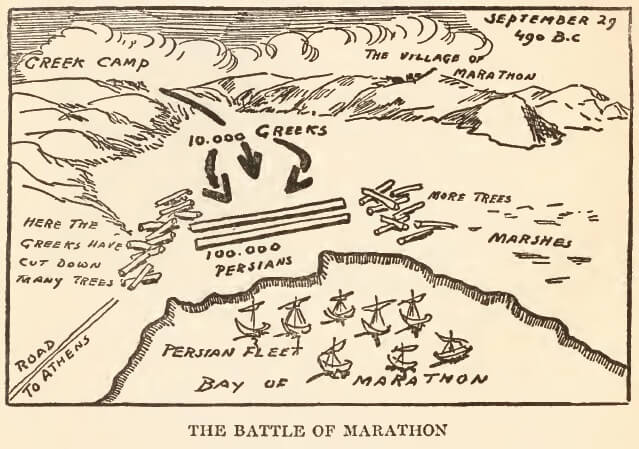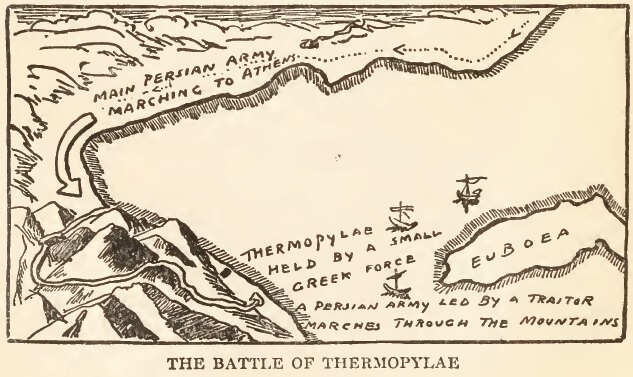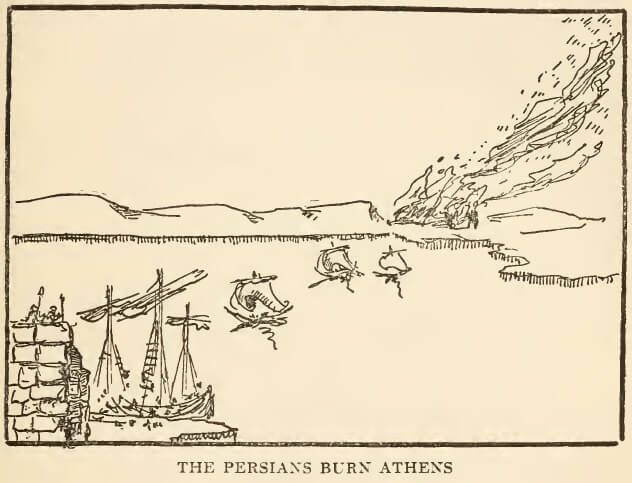Activity 1: Narrate the Lesson
- After you read or listen to the lesson, narrate the events aloud using your own words.
Activity 2: Study the Story Picture
- Study the story picture and describe how it relates to the story.
Activity 3: Map the Story
- Study the troop movements during the battle of Marathon.
- How many Greek soldiers fought? How many Persians soldiers?
- Where is the Persian fleet?
- Where is the village of Marathon?
- What did the Greeks cut down to hem the Persians in?
- Trace the path the Persians marched to attack Athens.
- What type of terrain did the Persians traverse?
- How did a Greek traitor help the Persian army?
Activity 4: Discuss Unity vs. Division
- At first, the Greek city of Sparta refused to help the Greek city of Athens fight the Persians.
- Do you think it was in Sparta's best interest to originally refuse help to Athens?
- Why do you think Sparta later decided to help after the Persians burned Athens?
- A common phrase, originally attributed to the Greek storyteller Aesop, is 'United we stand, divided we fall.' How does this phrase apply to the situation with Athens and Sparta?
Activity 5: Complete Copywork, Narration, Dictation, and Art

Click the crayon above. Complete pages 41-42 of 'World History Copywork, Narration, Dictation, and Art for Third Grade.'
 The Story of Mankind Part I
The Story of Mankind
The Story of Mankind Part I
The Story of Mankind





 The Story of Mankind Part I
The Story of Mankind
The Story of Mankind Part I
The Story of Mankind




